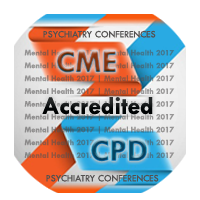
Ming-hui Li
St. John’s University, USA
Title: Title: Resilience and coping strategies: Learning to become resilient
Biography
Biography: Ming-hui Li
Abstract
Problem Statement: Resilience has been in studies for about four decades. Studies of resilience have gradually switched the perspective of mental health issues from psychopathology to a positive psychology. For the past 13 years, the author has focused on studying the process by which trait resilience influences coping strategies, which are related to adaptation and mental health. The author has always been exploring better approaches to improving human resilience.
Methods: Based on resilience theories and empirical studies, the following questions were addressed in my studies: (1) Can resilience predict active coping across different cultures? (2) Can resilience predict active coping across time? (3) Can resilience mediate the effect of stress on problem-solving? (4) Can resilience moderate the effect of stress on avoidance? (5) Can resilience be learned from life experiences? (6) In the process of learning to become resilient, do stress, generalized anxiety, attachment avoidance and attachment anxiety impact the influence of life experience-learning on resilience? Data were collected in the US, China, and Taiwan, using scales that have adequate validity and reliability. Structural equation modeling and Haye’s moderated mediation approach were applied to analyze data.
Findings: Resilience can predict active coping across cultures and across time. Although resilience can mediate the effect of stress on problem-solving, it cannot moderate stress’s effect on avoidance. Resilience can be learned through life experiences. Life experience-learning could directly influence resilience and indirectly influence resilience via self-efficacy and selfcompassion. Stress and generalized anxiety do not significantly impact the process of learning to become resilient. However, attachment avoidance and attachment anxiety can each negatively influence the process.
Conclusion: Findings suggest that mental health practitioners add a new ingredient, life experience-learning, to resilience development programs. In addition, resilience programs can be more effective when attachment anxiety and attachment avoidance are dealt with.

